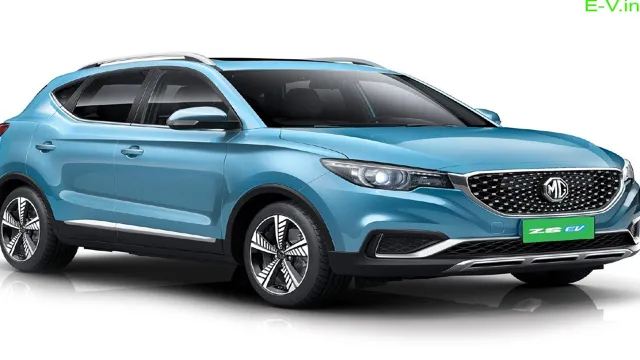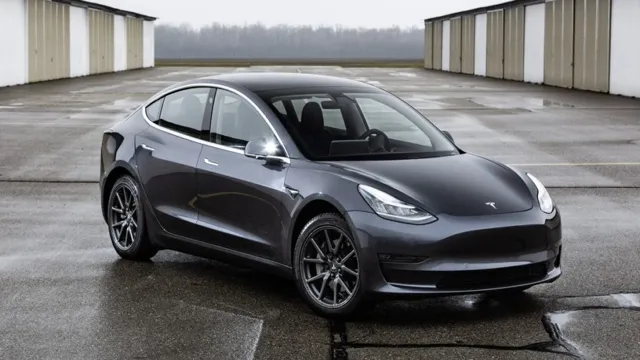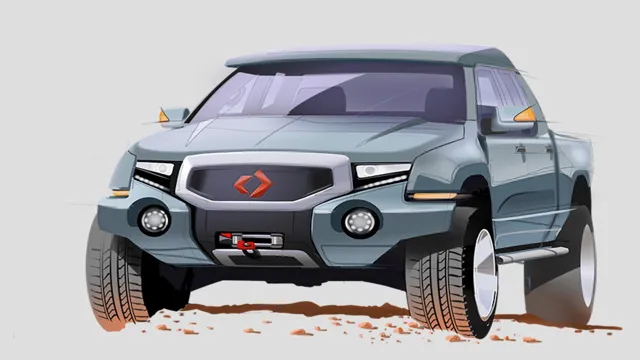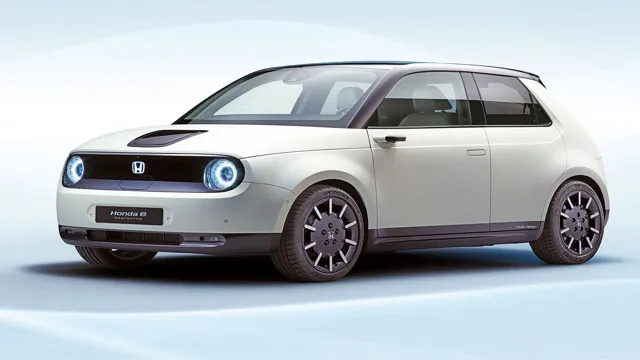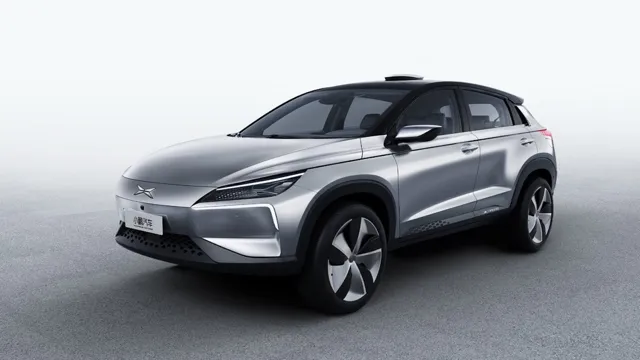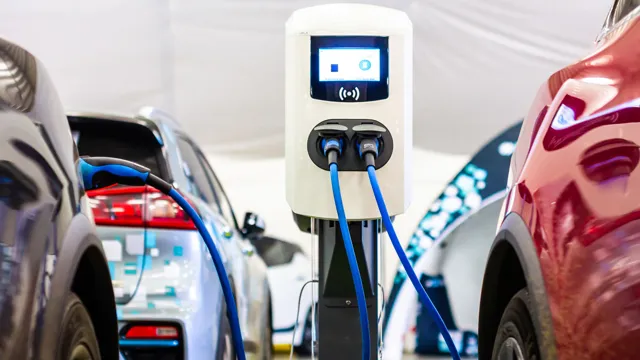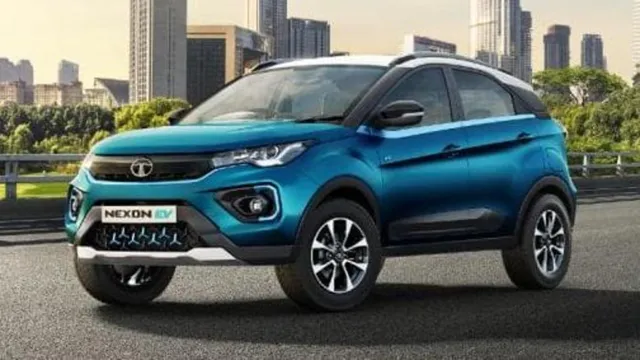Revolutionizing the Indian Roads: All the Latest Electric Car News and Updates You Need to Know
If you are an environment-conscious driver who wants to reduce their carbon footprint, then you must have considered owning an electric car. India has seen a significant rise in demand for electric vehicles(EV) due to growing awareness about climate change and the government’s push towards EV adoption. As the world focuses on sustainable living and protecting the planet, EVs are the future of transportation, and India is not far behind.
In this blog, we will discuss the latest news and updates on electric cars in India, so you don’t miss out on anything while making an informed decision.
Sales Figures and Government Incentives
Electric car sales figures in India have been steadily increasing over the past few years, and government incentives are playing a major role in encouraging buyers. With the goal of promoting sustainable transportation and reducing pollution, the Indian government has been offering several benefits to electric vehicle (EV) owners. These incentives include a reduced Goods and Services Tax (GST) rate, exemption from road tax and registration fees, and financial support for charging infrastructure installation.
The latest news in the Indian EV market is that sales have escalated by over 140% in the first quarter of 2021 compared to the same period in 2020, according to the Society of Manufacturers of Electric Vehicles (SMEV). This increase indicates that more and more people in India are willing to switch to electric cars, especially with the government’s continued support through incentives and policy measures.
Electric Car Sales Increase by 20% in 2021
Electric Car Sales Good news for the environment, as electric car sales have increased by 20% in 2021! These sales figures can be attributed to various factors, including the growing awareness of climate change and the benefits associated with owning an electric car. Additionally, government incentives such as tax credits and rebates have made electric cars more affordable and enticing for consumers. Many countries across the globe have offered these incentives to encourage the purchase of electric cars.
For instance, Norway is leading the way in this regard by offering significant tax breaks to those who purchase an electric car. It’s excellent to see that people are actively considering electric cars as a viable alternative to traditional petrol or diesel-based cars. Not only are electric cars better for the environment, but they also offer several cost benefits such as reduced fuel costs and maintenance expenses.
It’s encouraging to see that electric cars’ popularity is on the rise, and we hope that this trend continues in the future.
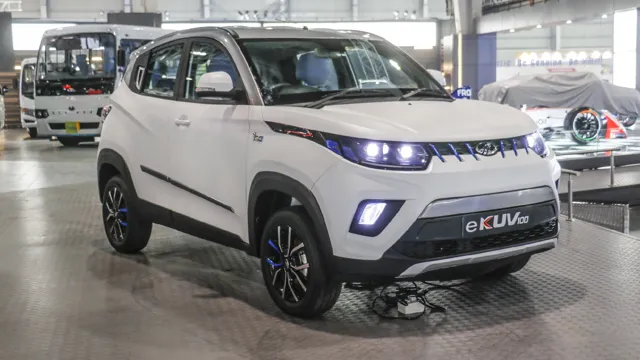
Government Budget Allocates Funds for EVs
The government’s allocation of funds for electric vehicles (EVs) is an exciting development for environmentally conscious drivers. This budget signifies the government’s commitment to reducing carbon emissions by promoting EV sales, and it’s a step in the right direction. In addition, EV sales have skyrocketed in recent years, with more and more people choosing to opt for eco-friendly alternatives.
This uptick in sales can be attributed in part to the government’s incentives, such as tax credits and rebates, which make purchasing an EV more affordable for consumers. With these incentives, drivers can save a considerable amount of money over time and help the environment at the same time. The government is making it clear that they believe in the future of EVs, and their investment will undoubtedly encourage more people to make the switch to green driving.
New and Upcoming Electric Cars in India
Electric car latest news India is buzzing with excitement about the new and upcoming vehicles set to hit the market soon. With the Indian government’s push towards electric mobility, car manufacturers are investing heavily in developing electric car models tailored to Indian driving conditions. Some of the most anticipated electric cars include the Tata Altroz EV, Mahindra eKUV100, and Hyundai Kona Electric.
The Tata Altroz EV is expected to offer a range of up to 250km on a single charge and will be priced competitively. Mahindra eKUV100, on the other hand, will be the cheapest electric car in the Indian market. It will be a compact SUV designed for city driving and will offer a range of up to 147km on a single charge.
The Hyundai Kona Electric, already launched in India, has a range of 452km on a single charge and comes equipped with infotainment features like Apple CarPlay, Android Auto and a digital instrument cluster. With such exciting options, the future of electric cars in India looks bright, and it won’t be long before they become a common sight on Indian roads.
Tata Nexon EV Launch Creates Buzz in Market
Electric Cars in India The automotive industry in India is going through a significant transformation, with the introduction of electric vehicles gaining traction in the market. One of the latest models to generate buzz is the Tata Nexon EV. The company launched this electric version of the popular SUV in 2020, and it is the first electric car from Tata Motors.
The Nexon EV boasts of a range of 312 km on a single charge, making it a practical option for daily use. Apart from Tata Motors, other major car manufacturers are also introducing new electric models in India. Hyundai recently launched its electric compact SUV Kona, which can travel up to 452 km on a single charge.
Mahindra has also launched its electric compact SUV eKUV100. Other car manufacturers such as Maruti Suzuki and Audi are expected to enter the Indian electric vehicle market soon. The government of India has been pushing for the adoption of electric vehicles to reduce pollution and dependency on fossil fuels.
As a result, it has introduced various incentives and schemes to encourage the uptake of electric vehicles. This push towards sustainable mobility has also seen the development of charging infrastructure across the country, making it easier for electric vehicle owners to recharge their cars. In conclusion, the Indian automotive industry is witnessing a significant shift towards electric vehicles, with major car manufacturers introducing new models to cater to the growing demand.
With government initiatives and support, the move towards sustainable mobility looks promising in the country. The future looks bright for the electric vehicles market in India.
Mahindra eKUV100 Expected to Launch in 2022
India is getting ready for another wave of electric cars hitting the market, marking the country’s transition towards sustainable mobility. One of the upcoming EV models is the Mahindra eKUV100, which is expected to launch in 202 With its bold design and impressive features, it promises to be a game-changer in the Indian automobile sector.
What sets the eKUV100 apart from its competitors is its affordable price tag and its compact size, making it ideal for city travel. Powered by a lithium-ion battery, the car can cover a range of over 140 km on a single charge, making it an attractive option for daily commuters. Exciting times lie ahead for EV enthusiasts in India as companies like Mahindra are ushering in a new era of electric cars with their innovative and sustainable offerings.
Tesla’s Entry into Indian Market Challenges Local Players
As Tesla makes its long-awaited entry into the Indian market, local players are gearing up for the competition. But this isn’t bad news for the Indian electric car market as a whole – in fact, it’s quite the opposite. With Tesla’s reputation for quality and innovation, it’s sure to push local manufacturers to up their game and produce even better electric cars.
And there are some exciting new electric cars in the Indian market, like the Tigor EV, Nexon EV, and Kona Electric, that are already proving popular with Indian consumers. With India’s commitment to shifting to electric vehicles, the country is poised to become a leader in the industry – and Tesla’s entry is only going to accelerate that progress. So stay tuned for more exciting developments in the Indian electric car market!
Charging Infrastructure Developments
Electric car latest news in India indicates a significant shift towards sustainability in the automobile industry. The charging infrastructure for electric cars in India is also developing rapidly, making it easier to drive long distances without worrying about your car’s battery life. Bangalore’s Electronic City is expected to be home to 100 DC fast charging stations, and the aim is to make the city completely electric car-friendly by 2030.
Along with this, smart cities like Delhi and Mumbai also have NFC-enabled smart charging stations. The government is incentivizing EV owners by offering free charging at public stations until 2022, which not only saves money but also promotes sustainable mobility. These charging infrastructure developments are crucial as they provide support to EV owners, increase the range of electric cars, and encourage more consumers to switch to sustainable forms of transportation, ultimately helping the environment.
Delhi Plans to Set Up 100 Public EV Charging Stations
Delhi, public EV charging stations, charging infrastructure developments Exciting news for Delhi residents as the city government plans to set up 100 public EV charging stations in the near future. This move is part of the city’s efforts to reduce air pollution levels and promote the adoption of electric vehicles. With the growing popularity of EVs, it’s important to have adequate charging infrastructure to support them, and this initiative is a step in the right direction.
The proposed charging stations will be installed in malls, hospitals, and markets, making it easier for EV owners to charge their vehicles while they go about their daily activities. This is a great solution for people who may not have access to home charging facilities. The city has also announced plans to install charging facilities in parking lots and at metro stations.
With the increased availability of charging stations, more people will be inclined to switch to electric vehicles, thereby reducing greenhouse gas emissions and improving air quality. The Delhi government deserves praise for taking an initiative that will make a significant impact in the battle against climate change.
Private Companies Lead the Way in Establishing Charging Network
Private companies are leading the way in establishing a robust charging infrastructure network for electric vehicles. These companies are providing a solution to the biggest challenge facing widespread adoption of EVs- range anxiety. Adoption of electric vehicles is increasing, and private companies are taking advantage of this trend by establishing charging stations in different parts of the country.
These charging stations are strategically located so that electric vehicles can travel long distances without running out of battery power. Private companies are using the latest technology and investing heavily in charging infrastructure to provide better and reliable charging solutions. Moreover, these charging stations offer more than just a charging point.
The companies are also working to create a comfortable atmosphere for drivers while charging their cars. Charging infrastructure is essential in ensuring the growth of EVs and is also helping to reduce carbon emissions. As more private companies invest in charging infrastructure, the future looks bright for electric vehicle adoption in the coming years.
Conclusion and Future Outlook
As India gears up for a sustainable future, the latest news in the electric car industry indicates a positive shift towards cleaner transportation. With advancements in technology and the government’s push towards electric vehicles, Indian consumers can now indulge in eco-friendly and pocket-friendly rides. It’s time to switch from petrol-headed to electric-minded and join the race towards a greener tomorrow.
So fasten your seat belts, charge your batteries, and let’s drive into a brighter future!” #ElectricDriveIndia
FAQs
What are the latest electric car models available in India?
Some of the latest electric car models available in India are the Tata Nexon EV, MG ZS EV, Hyundai Kona Electric, and the Mercedes-Benz EQC.
What is the range of the top-selling electric cars in India?
The range of top-selling electric cars in India varies from 200-400 km on a single charge. For example, the Tata Nexon EV offers a range of 312 km on a single charge, while the MG ZS EV offers a range of 419 km (ARAI certified).
What is the current state of infrastructure for electric cars in India?
The infrastructure for electric cars in India is slowly developing. Currently, there are more than 2700 charging stations across India, and the government has plans to install 10,000 charging stations in the next 3 years.
Are electric cars expensive compared to petrol/diesel cars in India?
Electric cars are generally more expensive than petrol/diesel cars in India due to the high cost of batteries. However, the cost of electric cars is expected to reduce in the near future due to government subsidies and advancements in technology. Additionally, the running cost of electric cars is lower than that of petrol/diesel cars in the long run, making them more cost-effective over time.
